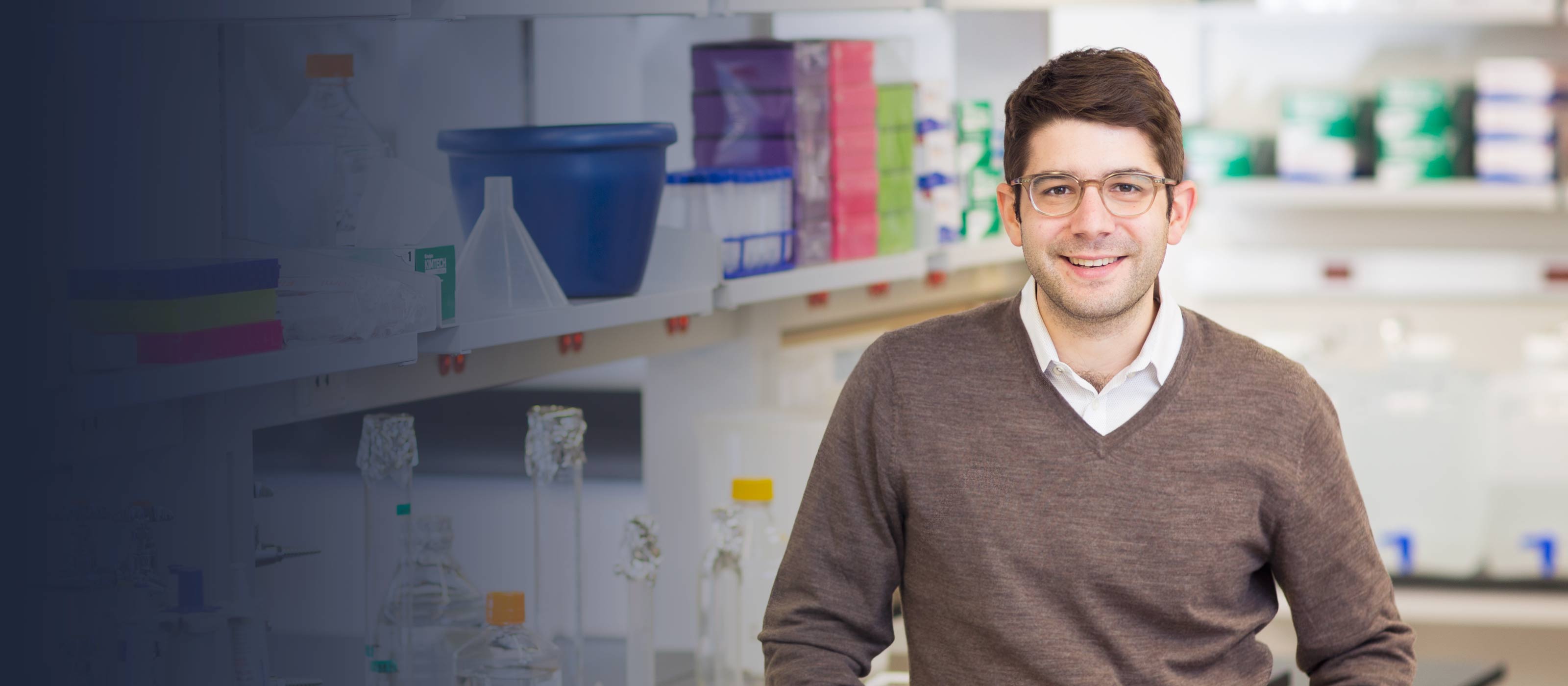Main content

Associate Professor, Department of Pathology
Cancer develops from mutations and copy number alterations in oncogenes and tumor suppressor genes. Genome sequencing studies have identified a large collection of genetic alterations that occur in human cancers. However, the determination of which mutations are causally related to tumorigenesis remains a major challenge. Our lab is pioneering the use of GEMMs of lung cancer in combination with in vivo CRISPR/Cas9 genome engineering approaches to address the immediate need to systematically interrogate the complex catalog of mutations obtained from cancer genome sequencing studies.
In the era of personalized medicine, CRISPR/Cas9-based approaches provide invaluable tools to tackle the complexity of cancers. The extensive information recorded from an individual patient tumor can be functionally validated using a platform that makes use of both in vitro and in vivo CRIPSR/Cas9-based approaches. Once important functional variants are identified, genetic and drug screens can be performed to identify genotype-specific vulnerabilities that may pave the road to new personalized genotype-based therapies, which is the ultimate goal of precision medicine.
Elucidating the role of physiologic and metabolic factors in lung tumorigenesis Metabolic reprogramming, oxidative stress and lung cancer
Kras-driven non-small cell lung cancer (NSCLC) remains one of the most aggressive and lethal solid tumors. ~20% of Kras-driven NSCLC acquire mutually exclusive activating mutations in the anti-oxidant transcription factor NRF2 or inactivating mutations in its negative regulator KEAP1. The anti-oxidant transcription factor NRF2 acts as the primary line of cellular defense against reactive oxygen species (ROS) by rewiring metabolism to maintain oxidative homeostasis.
Using a combination of a Kras-driven genetically engineered mouse model and somatic CRISPR/Cas9 genome-engineering approaches we have demonstrated the functional importance of NRF2/KEAP1 pathway in lung tumorigenesis. Using both metabolomic and focused genetic screening methods we are systematically indentifying novel mechanisms underlying the role of Nrf2/Keap1 pathway in lung cancer. We find unique metabolic dependancies in Nrf2/Keap1 mutant lung cancer cells which we validate by both genetic and biochmeical approaches. These dependancies highlight metabolic vulnerabilities in cells with increased anti-oxidant production due to alteration in the Nrf2/Keap1 pathway, which can we are exploiting as novel metabolism-based therapeutic strategies for lung cancer.
Lung cancer immune evasion and immunotherapy resistance
Immune-based therapies for lung cancer have yielded limited responses. Despite encouraging results, the overall response rate to immune modulators in the context of KRAS-driven lung cancer has remained less than 30%. Emerging clinical data suggests that mutations that frequently co-occur with KRAS may impact response to immunotherapy. Immune cells have distinct metabolic requirements that enable their proper activation and differentiation in order to mount an anti-tumor response. However, it remains unknown how mutations impact tumor cell autonomous metabolic reprogramming and alter the metabolic milieu in the tumor microenvironment to suppress anti-tumor immune responses.
Leveraging our expertise in cancer biology, genetically-defined mouse models, metabolism and collaborative efforts with the greater NYU immunology community, we are investigating how driver mutations shape the immune microenvironment and impact the infiltration and function of innate and adaptive immune cells.
Circadian rhythm disruption promotes lung cancer
Circadian rhythm disruption by shift-work is associated with greater risk for cancer development and poor prognosis, suggesting a putative tumor suppressive role for circadian rhythm homeostasis. Circadian rhythms are 24-hour oscillations that control a variety of biological processes in living systems, including two hallmarks of cancer, cell division and metabolism.Despite extensive characterization of genetic events that contribute to cancer, the impact of environmental/physiologic factors on tumorigenesis remains poorly understood. A major consequence of a modern lifestyle is the disruption of circadian rhythms. A plethora of epidemiological studies have revealed that the risk for many types of cancer, including lung, is significantly higher among shift-workers. In 2010, the World Health Organization and the International Agency for Research on Cancer, published an assessment on carcinogenicity of shift-work which concluded: “shift-work that involves circadian disruption is probably carcinogenic to humans”. This raises many concerns, since in the US alone, it is estimated that 20% of the US work force is subjected to shifting work schedule.
Using GEMMs of lung cancer, we are characterizing the effects of circadian rhythm disruption on lung tumorigenesis. We demonstrate that both physiologic perturbation (jet lag) and genetic mutation of the central circadian clock components decreased survival and promoted lung tumor growth and progression.
550 First Avenue, Smilow Building
5th floor, Room 505
New York, NY 10016
Associate Professor, Department of Pathology at NYU Grossman School of Medicine
PhD from University of California, Santa Barbara
Fellowship, Massachusetts Institute of Technology, Tyler Jacks
Cancer discovery. 2022 Mar 01; 12(3):625-643
Cell. 2019 Jul 11; 178(2):316-329.e18
Cell metabolism. 2020 Feb 04; 31(2):339-350.e4
Annual review of cancer biology. 2020 Mar 04; 4(pp):413-435
Science advances. 2021 Nov 19; 7(47):eabk1023
Nature medicine. 2017 Nov; 23(11):1362-1368
Cell. 2016 May 05; 165(4):896-909
Nature. 2026 Jan; 649(8096):E1